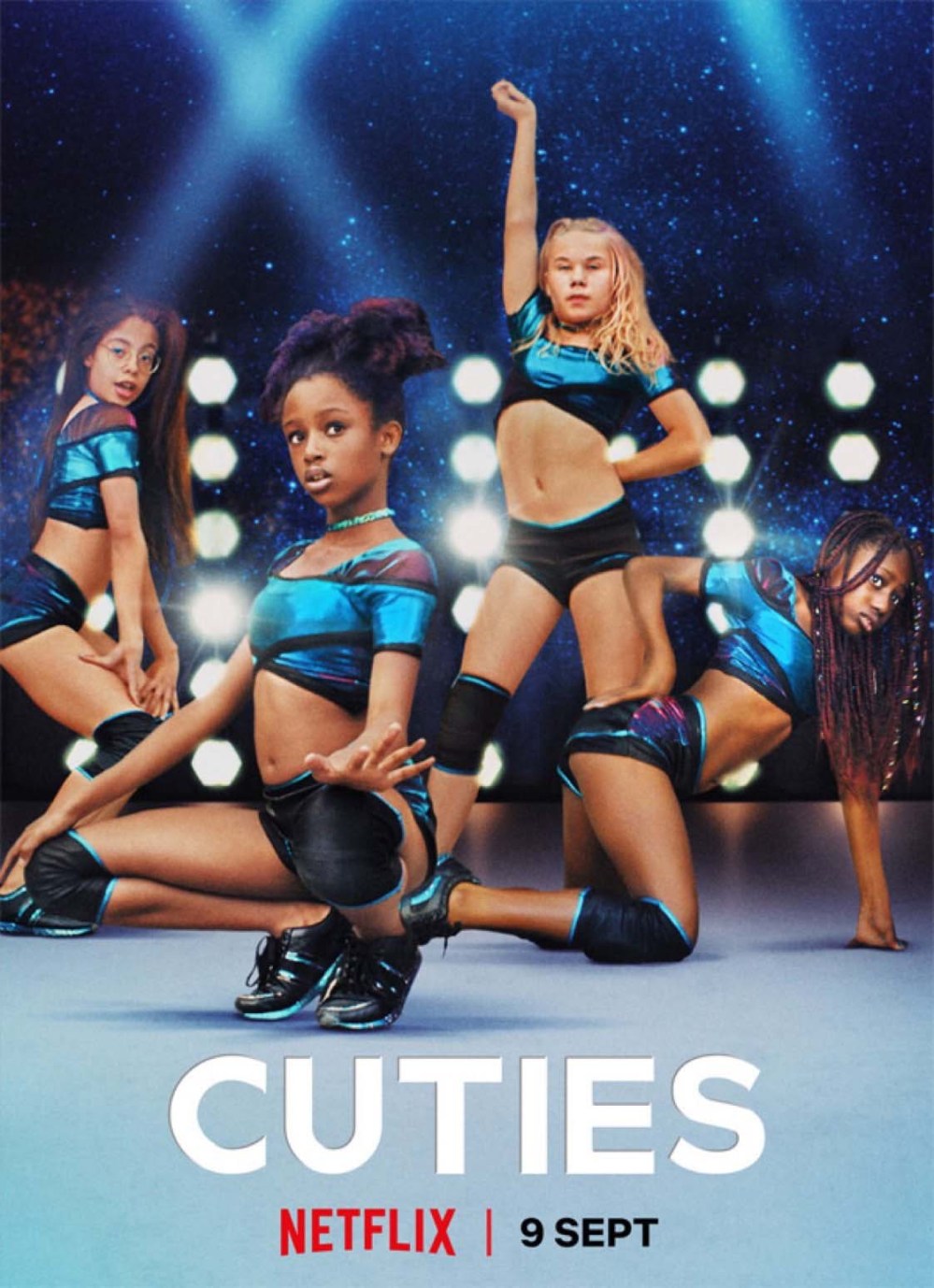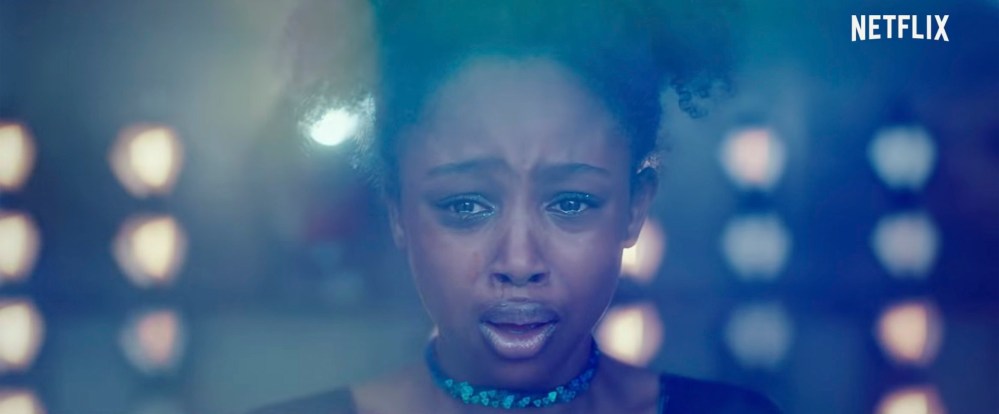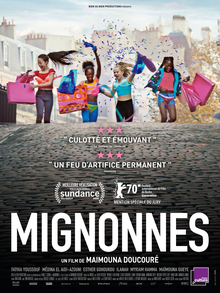Modest message missed in Cuties row
Read this article for free:
or
Already have an account? Log in here »
To continue reading, please subscribe:
Monthly Digital Subscription
$0 for the first 4 weeks*
- Enjoy unlimited reading on winnipegfreepress.com
- Read the E-Edition, our digital replica newspaper
- Access News Break, our award-winning app
- Play interactive puzzles
*No charge for 4 weeks then price increases to the regular rate of $19.00 plus GST every four weeks. Offer available to new and qualified returning subscribers only. Cancel any time.
Monthly Digital Subscription
$4.75/week*
- Enjoy unlimited reading on winnipegfreepress.com
- Read the E-Edition, our digital replica newspaper
- Access News Break, our award-winning app
- Play interactive puzzles
*Billed as $19 plus GST every four weeks. Cancel any time.
To continue reading, please subscribe:
Add Free Press access to your Brandon Sun subscription for only an additional
$1 for the first 4 weeks*
*Your next subscription payment will increase by $1.00 and you will be charged $16.99 plus GST for four weeks. After four weeks, your payment will increase to $23.99 plus GST every four weeks.
Read unlimited articles for free today:
or
Already have an account? Log in here »
Hey there, time traveller!
This article was published 16/09/2020 (1877 days ago), so information in it may no longer be current.
Last weekend, Erin O’Toole saw fit to weigh in on Cuties, the latest controversy distracting us from the fact that a pandemic rages on and the Earth is literally on fire.
The newly minted federal Conservative leader took to Twitter to say: “I’m a dad who is deeply disturbed by this Netflix show. Childhood is a time of innocence. We must do more to protect children. This show is exploitative and wrong.”
The fact O’Toole calls it a “show” indicates that he, like the majority of people calling for its removal from Netflix, has not watched the debut feature film from French director Maïmouna Doucouré.

The drama drew the ire of (non)viewers before it debuted on the streaming service because of its poster, showing a group of preteen girls in skimpy dance costumes and makeup, posed seductively.
This was, admittedly, a grave misrepresentation of the film’s intent by Netflix (unless one attributes to the company a truly Machiavellian level of strategy, designed to elicit controversy to drive eyeballs to a movie that otherwise would likely have gone entirely unnoticed). Netflix later apologized to the filmmaker and to viewers, and stopped using the poster.
Not that Cuties deserves to go unnoticed. The French-language film (Mignonnes is its original title) is a frank and often painful coming-of-age story that tackles the thorny questions of womanhood in the age of social media. It’s also a newcomer’s story, exploring the friction that results when traditional values rub up against permissive western mores.

Amy (the wonderfully expressive Fathia Youssouf Abdillahi) is an 11-year-old girl in a devoutly Muslim Senegalese family in Paris (the filmmaker based much of the story on her own childhood experience).
At her local mosque, she is told evil is inherent in women’s uncovered bodies. But Amy sees what her kind but distracted mother’s adherence to modesty and subservience has got her: sleeping alone in a single bed, taking care of three children and preparing a wedding chamber for her husband, who will soon return from Senegal with a second wife-to-be.
It’s not suprising that she’s drawn to the brazen, fearless quartet of girls at her school who wear cropped tops and platform sandals, and thumb their noses at authority. Their version of femininity certainly looks like more fun than what she sees at home.
Doucouré’s depiction of girls’ friendship is bang-on, filled with gleeful silliness and dark intensity. Amy becomes particularly close with Angelica, who lives in her building, and the two stuff their faces with candy, braid their hair together and have bitter fights.
The girls are training for a dance competition and Amy is fascinated by their confidence and brash style. In the darkness of her apartment at night, she practises the routine until they reluctantly let her join.
When she introduces them to even more risqué moves she’s gleaned from streaming sites on a cellphone she’s stolen from a relative, suddenly, she’s the star. Videos of the performance she’s choreographed get tons of likes; Amy’s wide eyes and shy smile reflect the dopamine rush of internet affirmation.
If you’re uncomfortable watching scenes where 11-year-old girls twerk and dance suggestively — as you may well be — ask yourself what presumed age the girls would have to be before you would become comfortable with their actions, the likes of which can be seen anywhere from music videos to Instagram stories.

Doucouré, who spent 18 months researching the way children are exposed to 18-plus content via social media, also cannily sets these scenes next to ones where the girls reveal their utter naiveté about sex; their dance moves are performative mimicry, bereft of any meaning beyond what the viewer brings to them.
The director also subtly explores the double-edged sword of sexuality and why it’s so dangerous in the hands of young women, not just girls, who don’t know how to deal with society’s fickle shift from lust to disgust. When Amy goes too far in trying to curry favour with her peers, she’s immediately slut-shamed, and her frustration and confusion erupt into rage.
Cuties is, at its core, actually quite conservative. Though it declines to preach, it delivers a message that a world where women are rewarded for using their sexuality as a commodity is flawed, even if those women are adults with agency over their bodies. It implies that social media is a scourge that corrupts the innocence of the young.
“We must do more to protect children.” On this point, at least, Maïmouna Doucouré and Erin O’Toole are on the same page.
jill.wilson@freepress.mb.ca
Twitter: @dedaumier

Jill Wilson is the editor of the Arts & Life section. A born and bred Winnipegger, she graduated from the University of Winnipeg and worked at Stylus magazine, the Winnipeg Sun and Uptown before joining the Free Press in 2003. Read more about Jill.
Jill oversees the team that publishes news and analysis about art, entertainment and culture in Manitoba. It’s part of the Free Press‘s tradition, since 1872, of producing reliable independent journalism. Read more about Free Press’s history and mandate, and learn how our newsroom operates.
Our newsroom depends on a growing audience of readers to power our journalism. If you are not a paid reader, please consider becoming a subscriber.
Our newsroom depends on its audience of readers to power our journalism. Thank you for your support.
History
Updated on Wednesday, September 16, 2020 7:56 PM CDT: Changes posters.
Updated on Thursday, September 17, 2020 10:56 AM CDT: Adds original poster and updates context.





